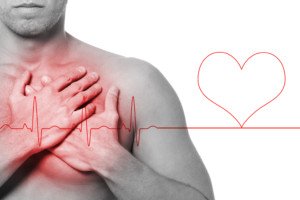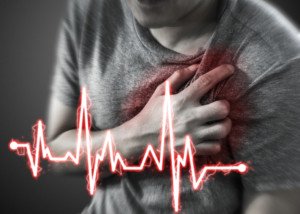
When you have PVCs, does your heart literally skip a beat, or does it only seem this way?
That “skipped” beat has been known to frighten many people, making them think that a heart attack is imminent or will occur in the near future.
So to find out what’s really going on with premature ventricular contractions, I asked cardiologist Dr. Pam Marcovitz, MD, an internal medicine cardiologist with Frankel Cardiovascular Center in MI. Her explanation applies to both women and men:
“Because the extra heartbeat happens earlier than expected, the heart’s normal beat senses the extra beat and pauses a few milliseconds before delivering its next beat,” explains Dr. Marcovitz.
“This pause is followed by a stronger heartbeat, and may be sensed as a skipped beat, a thump or a pounding sensation in the chest. Your doctor refers to this as a palpitation.”
Even a pause of just a few milliseconds can be perceived by the individual experiencing a premature ventricular contraction.
When you then feel that “thump!” that’s the stronger heartbeat, to compensate for that pause.

Shutterstock/Orawan Pattarawimonchai
So with PVCs, there is no skipped heartbeat, only a very slightly delayed heartbeat. Premature ventricular contractions do not indicate an increased risk of a heart attack.
To lower your risk of heart attack, there are many things you can do, including:
Don’t let sodium (salt) consumption exceed 1,500 mg daily.
Drastically reduce consumption of processed foods.
Eliminate as much as possible processed carbohydrates.
Eat at least 25 g of fiber a day.
Sleep seven to eight hours a day.
Eat red grapes, berries, dates, almonds, walnuts, seeds, wild game and wild caught fish.
If you eat meat, limit it to grass-fed or wild game only.
Take the following supplements: green tea extract, turmeric and garlic.
Do both interval cardio training and strength training.
PVCs or the sensation of a skipped heartbeat are not a risk factor for heart disease.
So instead of stressing about that, pay more attention to how many hours a day that you spend in a chair.
Prolonged sitting is linked to a myriad of health ailments including cardiac related.

Dr. Marcovitz has 40+ years of experience in helping people improve their heart health.
 Lorra Garrick has been covering medical, fitness and cybersecurity topics for many years, having written thousands of articles for print magazines and websites, including as a ghostwriter. She’s also a former ACE-certified personal trainer.
Lorra Garrick has been covering medical, fitness and cybersecurity topics for many years, having written thousands of articles for print magazines and websites, including as a ghostwriter. She’s also a former ACE-certified personal trainer.
.


























